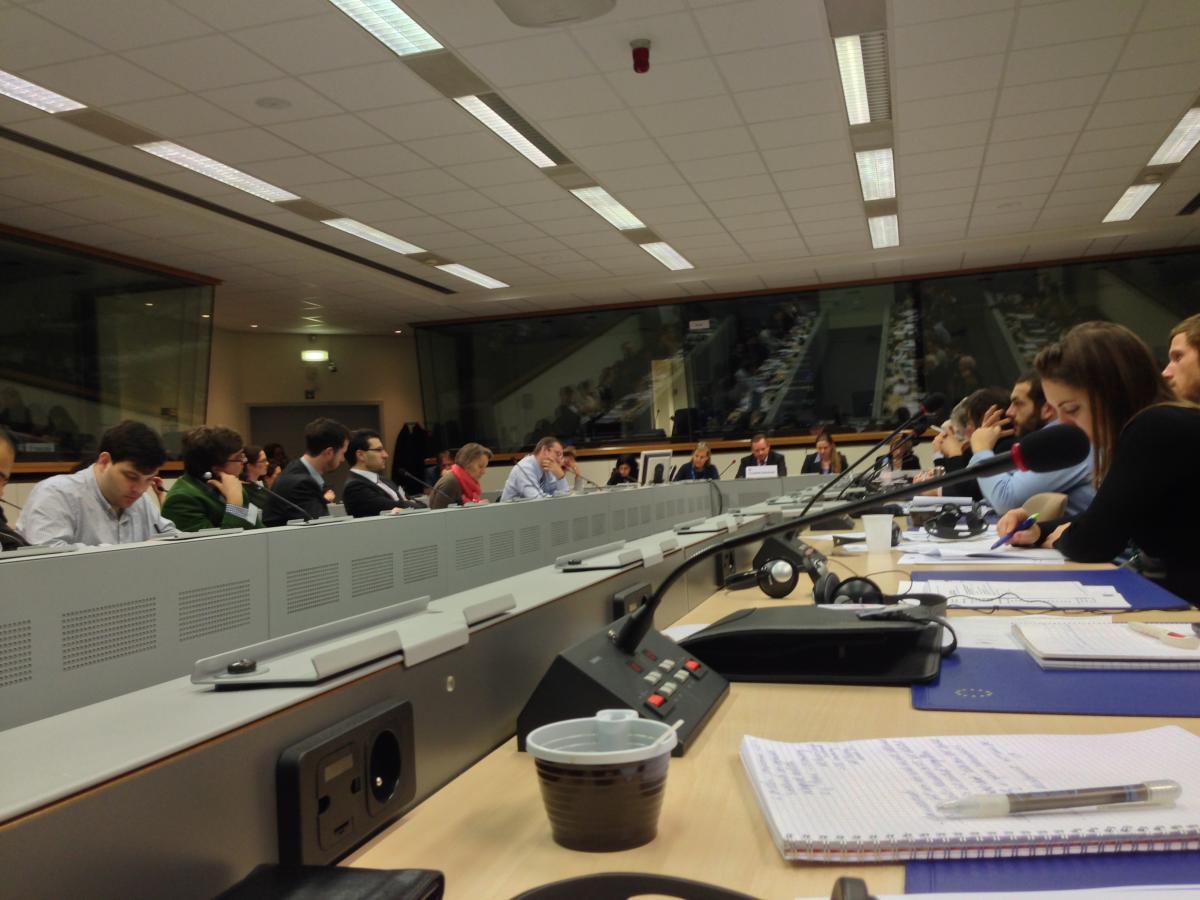The Harper government and European Commission still cannot agree on how to handle labour and environmental rules in the recently “concluded” Comprehensive Economic and Trade Agreement (CETA) negotiations, according to a “civil society dialogue” in Brussels yesterday afternoon. On one side, the EU continues to oppose financial penalties when a country is found violating labour laws. On the other, Canada doesn’t want any penalties at all for violating environmental rules.
“We want to treat environment and labour at the same level,” explained Philippe Dupuis, the Commission’s deputy head of unit for Canada and the United States at DG Trade, in response to my question (on behalf of PowerShift Germany) about why Canada is saying in a technical briefing on CETA that while “dispute settlement covers all obligations in the [Trade and Environment] Chapter,” there will be “no penalties or trade sanctions in cases of non-compliance.”
Dupuis said that the EU has not accepted Canada’s proposal for monetary penalties in case of labour violations, which is standard Canadian procedure in side-agreements on labour and environment tacked onto its free trade deals since NAFTA. But at the same time, “Canada doesn’t want a sanction-based mechanism for environment.” The Commission says “Canada has come in at a very different approach, with no mechanism for environment. We still need to finalize this.”
You don’t have to go very far into Google to learn why Canada doesn’t want “the environment” to interfere with its planned European corporate trade deal. Natural Resources Minister Joe Oliver was in Toronto again this week talking to miners and prospectors about how CETA was written with them in mind. There will be a super-strong investor protection chapter, which Dupuis and other Commission representatives also talked about this afternoon — 65 per cent of questions referenced it — but no way to hold corporations accountable for their environmental or social record.
Canadian mining companies use these investment rules to punish governments like Costa Rica who step in the way of plans to build unwanted gold mines. Infinito Gold wants $1 billion for their pains. A U.S. company, Lone Pine Resources, is using NAFTA’s investor-to-state dispute process to penalize Canada — they’re asking $250-million–for Quebec’s partial moratorium on fracking in the St. Lawrence Valley. Council of Canadians Political Director Brent Patterson suggests some other likely targets of Canadian corporate lawsuits in Europe.
I’m in Brussels this week with Scott Sinclair of the Canadian Centre for Policy Alternatives and Larry Brown of the National Union of Public and General Employees. We’re here as part of another Trade Justice Network delegation to talk to European allies and officials post-“Harper-Barroso” deal-in-principle about what can be done to stop CETA or, as Plan B, to take out some its worst parts. That would absolutely need to include CETA’s investor-to-state dispute settlement (aka corporate “rights”) clause — something almost everyone we’ve spoken to so far agrees has no place in the deal.
By chance, Brussels is hosting U.S.-EU trade and investment negotiations this week, and investment protection in that deal is galvanizing opposition across the continent, including from high-profile columnists like George Monbiot. In other words, we’re in good company and making new friends every day. People like U.K. trade reseracher Linda Kaucher, Johannes Kleis of the European Consumer Organization (BEUC), and Fabian Flues of Friends of the Earth Europe, who all attended today’s briefing from the Commission.
I’ll have more updates from the week as it unfolds.




